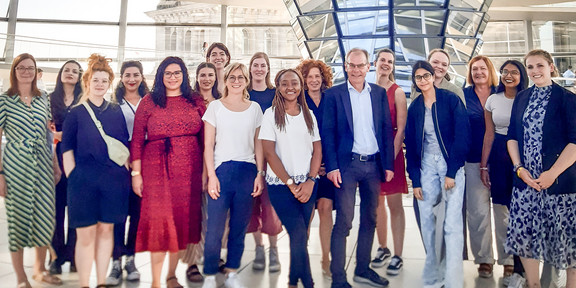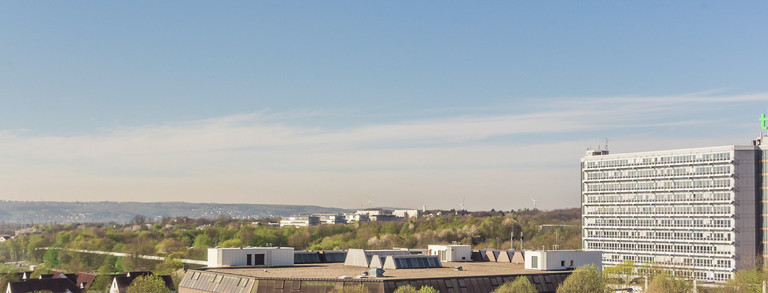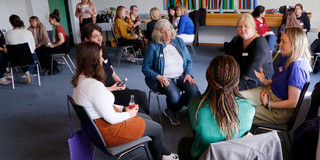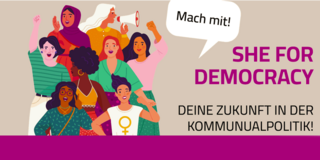Students travel to Berlin with "She for Democracy"
- News
- She for Democracy

The participants started their stay with a visit to the Berlin-Hohenschönhausen memorial. During the tour, they were given detailed information about the history of the site. A Soviet special camp was set up in the buildings of a former canteen kitchen of the National Socialist People's Welfare Organization after the end of the Second World War. After its closure, the central Soviet remand prison for East Germany was established here. In the 1950s, the Ministry for State Security (MfS) took over the site. The participants visited the inhumane prison cells in the basement and the so-called new building, where many opponents of the GDR regime were imprisoned. At the end of the tour, they also visited the interrogation rooms and received detailed information about the various interrogation methods and the psychological decomposition of the detainees. The first day of the visit ended with a communal dinner and an in-depth discussion.
Experience politics up close
On the second day, a city tour through the government district was on the agenda, starting at the Brandenburg Gate. The participants learned a lot about the history of Berlin during the Weimar Republic, National Socialism, the GDR and since the reunification of Germany. They also heard numerous moving stories of escape from GDR citizens and how the history of the GDR still shapes our society today. It became particularly clear how history can be told through the cityscape and its changes. After lunch, the participants visited the Reichstag building, where they were able to watch a plenary session of the Bundestag. This was followed by a discussion with a member of the Bundestag from Dortmund. He talked about his personal career in politics, his everyday life between Berlin and Dortmund and the daily challenges in German politics. There was then time for a discussion about existing social challenges in Dortmund and important development steps for the future. The visit ended with a tour of the dome on the roof of the Reichstag building.
On the last day of their program, the participants took part in a round table discussion at the Federal Ministry for Family Affairs, Senior Citizens, Women and Youth (BMFSFJ). Here they had the opportunity to learn more about the work of the Ministry, discuss current programs and strategies and make important suggestions from Dortmund's urban society. The last item on the day's agenda was a visit to the Tränenpalast. During the GDR era, the Palace of Tears was the check-in hall of the border crossing point at Friedrichstraße station and is now a museum that provides information about the effects of the division of Germany. During the tour, we were particularly impressed by the control and check-in counters, where employees of the Ministry of State Security checked travelers in cramped booths.








